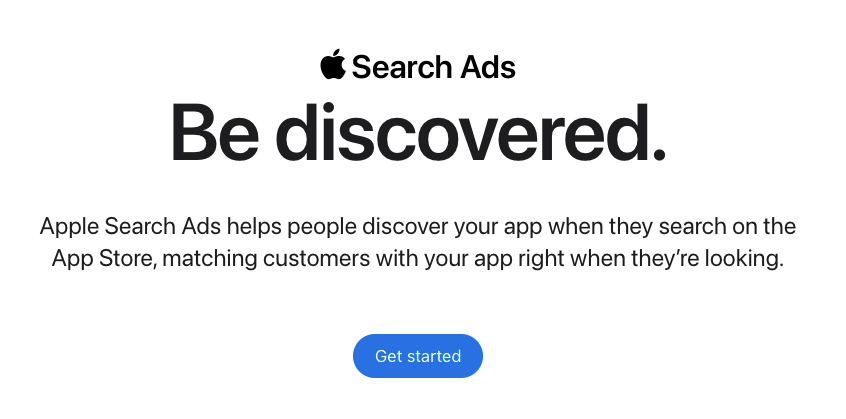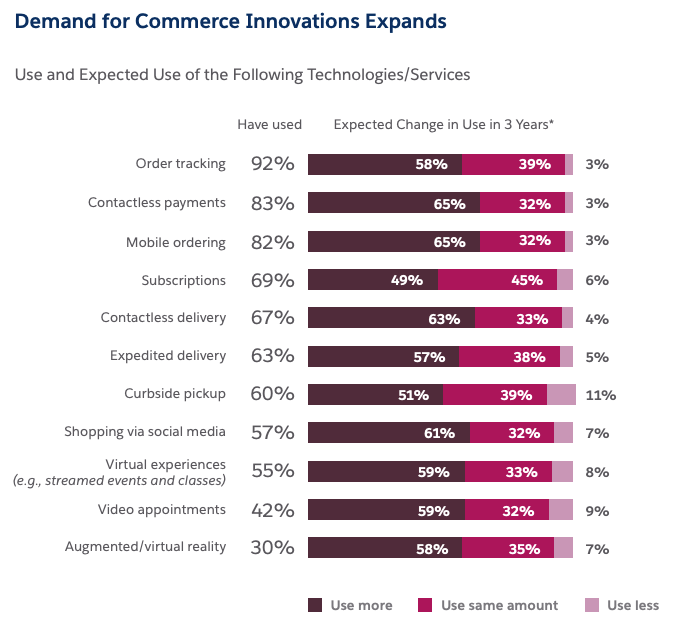Apple Ups Ads, TikTok Store Visits, CX Hope vs. Reality

Apple Wants More Search Revenue
Apple may stake much of its future growth on services and advertising rather than cool new devices. That’s according to a report from Business Insider ("sources with knowledge") discussed by The Verge. Apple is apparently reorganizing internally to emphasize these two areas. Services includes the App Store, Apple Pay, Apple Music, Apple TV Plus, iCloud, AppleCare and other subscriptions. These units added a massive $75 billion to Apple revenues last year. Advertising – mostly search ads in the App Store – grew 238% in 2021 for $3.7 billion. That is projected to become $5.5 billion by the end of this year. (That's because Apple is a major source of ad-driven app downloads.) By comparison Amazon's 2021 ad revenue was ~$31 billion, Snap's was ~$4 billion and Twitter's was just under $5 billion.

Our take:
- Apple's privacy changes (App Tracking Transparency) are clearly benefitting the company, compelling app marketers to use search ads.
- This has antitrust implications (at least in Europe). In-app payments and Apple Pay are already under scrutiny in multiple countries.
- Putting more emphasis on ad revenue threatens to undermine Apple's strong privacy messaging that has been successful to date vs. Google.
TikTok In-Store Attribution
TikTok announced a partnership with Foursquare to allow advertisers to measure store visits. Store attribution uses an exposed vs. control methodology: one group sees the ads, the other doesn't. Visits are tracked (via smartphone) for some period of time thereafter: 14 days, 30 days. If the exposed group shows up in store more than the unexposed group, the campaign is successful. Foursquare gets mobile-location data from its own app and developers using its SDK. TikTok points to a McDonald's case study as evidence of success: TikTok ads drove 2.9% more visits than for the unexposed group. The company says store attribution can answer questions like: "how many incremental visitors does TikTok drive to my store?" and "which audiences are driving the most value for my business?" This year TikTok will dethrone YouTube as the social site where users spend the most time.

Our take:
- Google and Facebook also offer offline attribution (Facebook deprecated some of this in 2021). Beyond Foursquare, there are multiple companies that measure store visits (e.g., PlaceIQ/Precisely, InMarket, Gravy).
- Typically, only the largest advertisers can take advantage of these capabilities. Privacy restrictions are now impacting data availability.
- A major issue: ethical (consent-based) sourcing of location data. Some percentage (unclear how much) is harvested without consent.
Survey: CX Hope vs. Reality
Customer loyalty is a function of trust, great service and consistent experiences. Those are the big takeaways from Salesforce's Connected Customer report. Based on a global survey B2C and B2B buyers, it surprisingly finds trust in companies is up (52% vs 48% in 2020). This, despite more fluid consumer buying (i.e., brand substitution) and trust erosion from increasing consumer privacy concerns. Other findings reflect ambivalence or seem to contradict real-world data: "53% of customers prefer to purchase online versus in store" and ~70% expect personalized brand interactions. But e-commerce has stalled and personalization is mostly a failure. Most consumers (80%) want more data-usage transparency, but 64% say it's not happening. Among the B2B findings, nearly 90% of buyers "want companies demonstrate an understanding of their goals" and be "trusted advisors." Yet sellers overwhelmingly fail. Bottom line: customer expectations are rising and companies mostly aren't delivering.

Our take:
- The survey conveys abstract consumer/business buyer desires contrasted with actual experiences, which typically fall short.
- Despite the ambivalence and contradictions on display, the data contain some clear directives for brands and B2B sellers.
- Be transparent, consistent (across channels) and deliver excellent service. Common sense but seemingly difficult to execute.
Recent Analysis
- The Hidden Side of CX: Mining Unstructured Data, by Adam Dorfman.
- Near Memo episode 63: Earth Day promos can damage reputation, CX is more than a number, SMBs need an integrated digital approach.
Short Takes
- Google's SEO certification course giving bad SEO advice.
- Google uses ML/AI to improve responsive display ads.
- Here's the Google I/O keynote.
- Netflix: Ad-supported subscription tier coming this year.
- Industry changing iPod being phased out by Apple (NYT).
- Nextdoor Q1: $51M revenue, up 48%; better-than-expected.
- Side hustle: Amazon wants SMBs to do rural area delivery.
- SMB failure rates: 20% in year one, ~50% by year five.
- After pandemic splurge, SMBs to pull back on IT spending.
- Restaurant ties bonuses to review scores on Yelp, Google.
- Mike B's advice on how to respond to negative reviews.
- Using data brokers, immigration officials spying on most Americans.
- Clearview AI settles major suit under Illinois biometric privacy law.
- Going private will make Twitter more vitriolic, users fear.
- Uncanny photorealism in video game rendering is coming.
Listen to our latest podcast.

How can we make this better? Email us with suggestions and recommendations.

